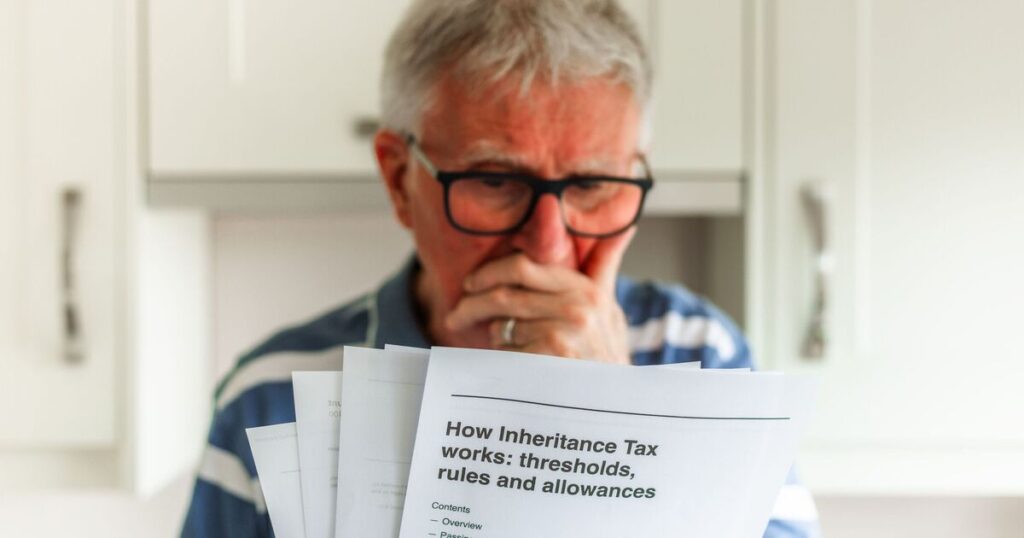
The number of grieving families hit by Britain’s most resented tax is set to rocket with the Treasury set to grab £9 billion through Inheritance Tax (IHT) by 2027.
A report by Irwin Mitchell, based on previously unseen Government figures, lays bare the devastating impact of frozen thresholds and stealth tax hikes – with thousands more families dragged into the net every year.
Its calculations suggest that the number of estates liable for the levy is expected to surge to more than 37,000, up from just over 24,000 in 2021/22.
The legal firm analysed data covering 177,000 estates across all 121 UK postcode areas. It found that nine in ten will see a rise in IHT cases by 2026/27 compared to five years earlier.
In Greater London alone, the total amount paid is forecast to jump by 54% over five years, reaching £2.6bn annually.
The number of estates hit in the capital is projected to climb 43% to around 9,400, with average bills hitting £275,000 – and a staggering £340,000 in Inner London.
Other major cities including Leeds, Manchester and Birmingham will also suffer double-digit rises in the share of estates paying the tax, while ten postcodes across the country are expected to see their number of IHT cases double.
Andrea Jones, national head of Irwin Mitchell’s Private Client Advisory team, said: “The increase in Inheritance Tax liabilities across the UK is a significant concern for many families.
“Our findings highlight the urgent need for individuals to seek professional advice to navigate these changes and plan effectively for the future.
“With the threshold freeze extended until 2030 and changes to Business and Agricultural Property Relief from April 2026, it’s more important than ever to understand the implications and take proactive steps to mitigate the impact on estates.”
The surge comes after Chancellor Rachel Reeves confirmed in her first Budget that the freeze on IHT thresholds introduced by the Conservatives would be extended until 2030.
This means that thousands more estates are dragged into paying the tax each year, even if their value has risen only modestly due to inflation and house price growth.
On top of that, sweeping reforms to Business and Agricultural Property Relief are set to bite from April 6, 2026, hitting farmers and other business owners.
These changes will cap the current 100% tax relief at £1million in combined assets, with any value above that receiving just 50% relief. AIM-listed shares will also be less protected.
The Office for Budget Responsibility estimates these changes will hit at least 1,570 estates in its first year – raising an extra £200million for the Treasury.
Adding insult to injury, inherited pensions – previously excluded from the IHT net – will be brought into scope from April 2027.
Critics say the reforms amount to a creeping death tax raid on middle Britain, with the burden falling hardest on families who’ve worked hard, saved diligently and now face being punished for it.
 Latest World Breaking News Online News Portal
Latest World Breaking News Online News Portal






